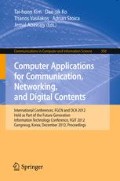Abstract
Mastering, a form of audio post-production, is the process of preparing and transferring recorded audio from a source containing the final mix to a data storage device (the master); the source from which all copies will be produced (via methods such as pressing, duplication or replication). Recently, the format choice includes using digital masters although analog masters, such as audio tapes, are still being used by the manufacturing industry and by a few engineers who have chosen to specialize in analog mastering. In order to make a deterministic process, mastering requires critical listening; there are software mastering tools available to facilitate this last step, but results still depend upon the accuracy of speaker monitors. In addition, “music mastering” engineers may also need to apply corrective equalization and dynamic enhancement in order to improve upon sound translation on all playback systems. This paper gives an overview of the audio mastering process and the various techniques used in it.
Access this chapter
Tax calculation will be finalised at checkout
Purchases are for personal use only
Preview
Unable to display preview. Download preview PDF.
References
Reiss, J.D.: Design of Audio Parametric Equalizer Filters Directly in the Digital Domain. IEEE Transactions on Audio, Speech, and Language Processing 19 (2011)
Orfanidis, S.J.: High-order digital parametric equalizer design. J. Audio Eng. Soc. 53, 1026–1046 (2005)
Mishali, M., Eldar, Y.C.: Blind Multiband Signal Reconstruction: Compressed Sensing for Analog Signals. IEEE Transactions on Signal Processing 57(3) (March 2009)
Holters, M., Zölzer, U.: Graphic Equalizer Design Using Higher-Order Recursive Filters. In: Proc. of the 9th Int. Conference on Digital Audio Effects, Montreal (2006)
Orfanidis, S.J.: High-order digital parametric equalizer design. J. Audio Eng. Soc. 53(11), 1026–1046 (2005)
Peleg, S., Ben-Ezra, M.: Omnistereo: Panoramic Stereo Imaging. IEEE Transactions on Pattern Analysis and Machine Intelligence 23(3) (March 2001)
Barchiesi, D., Reiss, J.: Reverse Engineering of a Mix. J. Audio Eng. Soc. 58(7/8) (2010)
Katz, B.: Mastering Audio: The Art and the Science. Focal Press (2002)
Breebaart, J., Engdegård, J., Falch, C., Hellmuth, O., Hilpert, J., Hoelzer, A., Koppens, J., Oomen, W., Resch, B., Schuijers, E., Terentiev, L.: Spatial Audio Object Coding (SAOC)-The Upcoming MPEG Standard on Parametric Object Based Audio Coding. Presented at the 124th Convention of the Audio Engineering Society (2008)
Simmer, U., Schmidt, D., Bitzer, J.: Parameter Estimation of Dynamic Range Compressors: Models, Procedures, and Test Signals. Presented at the 120th Convention of the Audio Engineering Society, J. AudioEng. Soc. (Abstracts) 54, 736 (2006); Convention Paper 6849
Barchiesi, D., Reiss, J.: Automatic Target Mixing Using Least-Squares Optimization of Gain and Equalization Settings. In: Proc. 12th Int. Conf. on Digital Audio Effects (DAFx 2009), vol. 1, pp. 7–14 (September 2009)
Zolzer, U.: DAFx: Digital Audio Effects. John Wiley & Sons, Chichester (2002)
McNally, G.W.: Dynamic Range Control of Digital Audio Signals. J. Audio Eng. Soc. 32, 316–327 (1984)
Bharitkar, S., Kyriakakis, C.: Immersive Audio Signal Processing. Springer, New York
Karjalainen, M., et al.: About room response equalization and dereverberation. In: Proc.WASPAA 2005, New Paltz, NY, pp. 183–186 (October 2005)
Miyoshi, M., Kaneda, Y.: Inverse filtering of room acoustics. IEEE Trans. Signal Processing 36(2), 145–152 (1988)
Hans, M., Schafer, R.W.: Lossless compression of digital audio. IEEE Signal Processing Magazine 18(4), 21–32 (2001)
Rad, M., Mertins, A., Bumett, I.: Audio compression using the MLT and SPIHT. In: Proceedings of DSPCS 2002, pp. 128–132 (2002)
Irwan, R., Aarts, R.M.: Two-to-five channel sound processing. J. Audio Eng. Soc. 50(11), 914–926 (2002)
Faller, C.: Multiple-loudspeaker playback of stereo signals. J. Audio Eng. Soc. 54(11), 1051–1064 (2006)
Author information
Authors and Affiliations
Editor information
Editors and Affiliations
Rights and permissions
Copyright information
© 2012 Springer-Verlag Berlin Heidelberg
About this paper
Cite this paper
Prince, S., Shankar Kumar, K.R. (2012). Survey on Effective Audio Mastering. In: Kim, Th., Ko, Ds., Vasilakos, T., Stoica, A., Abawajy, J. (eds) Computer Applications for Communication, Networking, and Digital Contents. FGCN 2012. Communications in Computer and Information Science, vol 350. Springer, Berlin, Heidelberg. https://doi.org/10.1007/978-3-642-35594-3_41
Download citation
DOI: https://doi.org/10.1007/978-3-642-35594-3_41
Publisher Name: Springer, Berlin, Heidelberg
Print ISBN: 978-3-642-35593-6
Online ISBN: 978-3-642-35594-3
eBook Packages: Computer ScienceComputer Science (R0)

